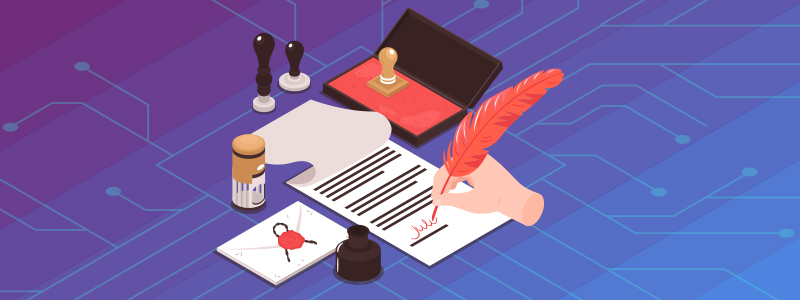Artificial intelligence will be at the forefront of the legal field for years to come. So if you are a lawyer or a law student, you should start learning about this. Artificial intelligence has been helping lawyers for years by doing jobs that require less brainpower and more about the organization. For example, it could go through millions of pieces of paperwork to analyze which ones need your attention. It could also help you find cases that have similarities with your current case.
A.I. could also offer predictions on outcomes in court cases, which would be helpful information for predicting what might happen during proceedings and how best to prepare for them.
This article discusses some of the ways artificial intelligence can help lawyers work smarter and more efficiently in the future!
Artificial Intelligence’s Role in Law
Artificial intelligence is increasingly playing a role in the law, and lawyers should start paying attention. The processing power of machines has increased exponentially over the past few years, and this will only continue. A.I. has already been used to help lawyers by doing jobs that require less brainpower and more about the organization, like going through millions of pieces of paperwork to find which ones need your attention first.
A.I. could also offer predictions on outcomes in court cases, which would be helpful information for predicting what might happen during proceedings and how best to prepare for them.
While many people are concerned that A.I. could replace lawyers altogether, the truth is that most lawyers are worried about becoming irrelevant if they don’t change with the times and embrace new technologies like A.I. If you’re a lawyer or a law student, this article should serve as a wake-up call: it’s time to start learning about A.I.
What A.I. Offers to Lawyers
Artificial intelligence will play an essential role in the legal field for years to come. It will be used as a tool by lawyers and serve as a replacement for some of the things that lawyers currently do.
For example, A.I. can go through millions of pieces of paperwork to analyze which ones need your attention first. It can also help you find cases that have similarities with your current case.
A.I. can also offer predictions on outcomes in court cases, which would be helpful information for predicting what might happen during proceedings and how best to prepare for them.
A.I.’s Limitations
However, there are limitations of A.I., and not all the jobs that lawyers do can be replaced by it. The primary one is that you cannot teach it all the intricacies of the law. So, for example, if a lawyer wanted to use A.I. in court and the opposing counsel brought up a legal question that had never been seen before, the A.I. would not be able to answer it without more training or knowledge of the law in that area.
Another significant limitation is that we don’t know how to program ethics for AI yet. Currently, there’s been a lot of debate about A.I.’s role in society and whether or not it should have ethical guidelines.
Another limitation is that this technology has been around for decades but has only recently become popular among professionals. It’s still evolving, and we don’t know how long it will take for this technology to replace humans in legal fields entirely.
Some people are concerned with how much data will be gathered from users when searching for case law or statutes on these new A.I.-powered platforms. They worry about their privacy and who can access their data, and for what purpose it might be used in the future.
A final limitation is that few people are skilled at programming with artificial intelligence. So, if your lawyer doesn’t have any experience with A.I., he may struggle to teach the AI what to do or make sure the tech does what he wants without any accidents happening.
However, these are just some things you should keep in mind before using artificial intelligence to replace human jobs in law firms!
The Future of AI and the Legal Profession
Artificial intelligence will be at the forefront of the legal field for years to come. Artificial intelligence has been helping lawyers for years by doing jobs that require less brainpower and more about the organization. As A.I. matures over the years and frameworks emerge to manage ethics and privacy, A.I. will become an integral part of the legal profession.
Conclusion
Artificial intelligence is a topic that is often misunderstood. Some believe that A.I. will replace their jobs, while others believe that A.I. will make their work easier. In reality, A.I. is a tool that will help lawyers do their job more efficiently and accurately. When it comes to writing and structuring legal documents, A.I. is already making lawyers’ work easier by taking care of the menial tasks and tedious formatting while also helping them keep up with changing legal trends and requirements. The future of A.I. in the legal profession will be defined by its ability to help lawyers do their jobs better, not replace them. If your firm wants to explore possibilities with A.I., please visit www.Deepdatum.ai to know more about us.


Leave A Comment